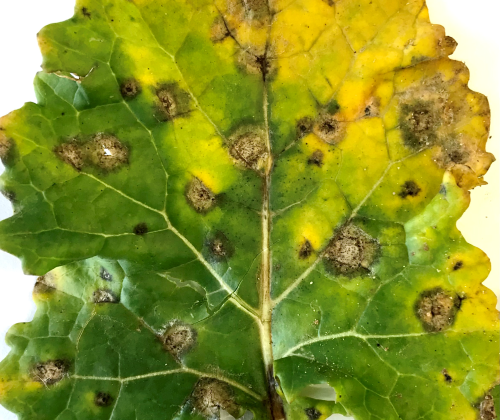United Kingdom
March 27, 2024

The fungal species that cause Phoma leaf spot and stem canker in oilseed rape are showing decreased sensitivity to some chemical controls, sparking concerns for growers in Western Europe, according to a new study.
The diseases damage brassicas and are caused by two fungal species Plenodomus lingam (Leptosphaeria maculans) and P. biglobosus (L. biglobosa). In Europe, a range of fungicides are used for control, but azoles (known as DMIs) which act as inhibitors for a fungal enzyme, are fast becoming ineffective.
“Decreased DMI sensitivity has already emerged in Australian and eastern European P. lingam populations,” says Dr Kevin King, who led the research. “However, we are now seeing it in Western Europe, which is very worrying.”
The study was based on in vitro sensitivity testing. Decreased DMI sensitivity was found in modern western European P. lingam isolates (collected 2022-23) compared to baseline historical (1992-2005) isolates.
The genetic sequence identified as responsible for the change was associated with a 3-10 fold decrease in sensitivity to the DMIs tested.
In contrast to P. lingam however, the same genetic sequences were absent in modern western European P. biglobosus isolates (2021-23).
“To date, there is no evidence that sensitivity to other control agents is changing for either species,” says Dr King. “So other fungicides such as QoI (pyraclostrobin) or SDHI (boscalid) should remain effective for now – but relying too heavily on a smaller arsenal of chemicals may well generate more instances of resistance developing in future. More integrated pest control options that incorporate biological agents and different approaches to cultivation and cropping should be explored.”
The research was funded by the BBSRC under the Growing Health and Resilient Farming Futures strategic research programmes.
Publication
Evolution of decreased sensitivity to azole fungicides in western European populations of Plenodomus lingam (Phoma stem canker on oilseed rape)